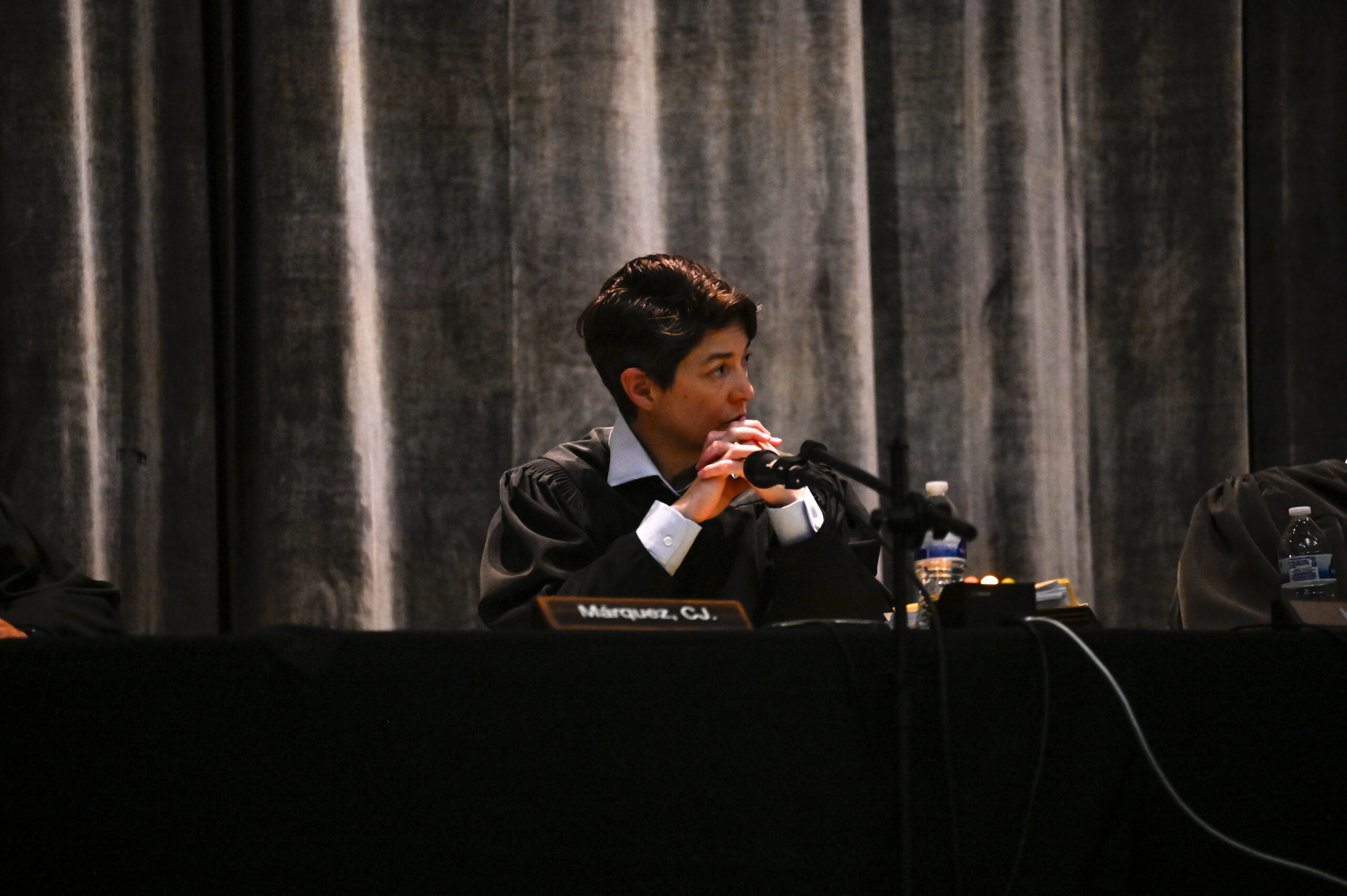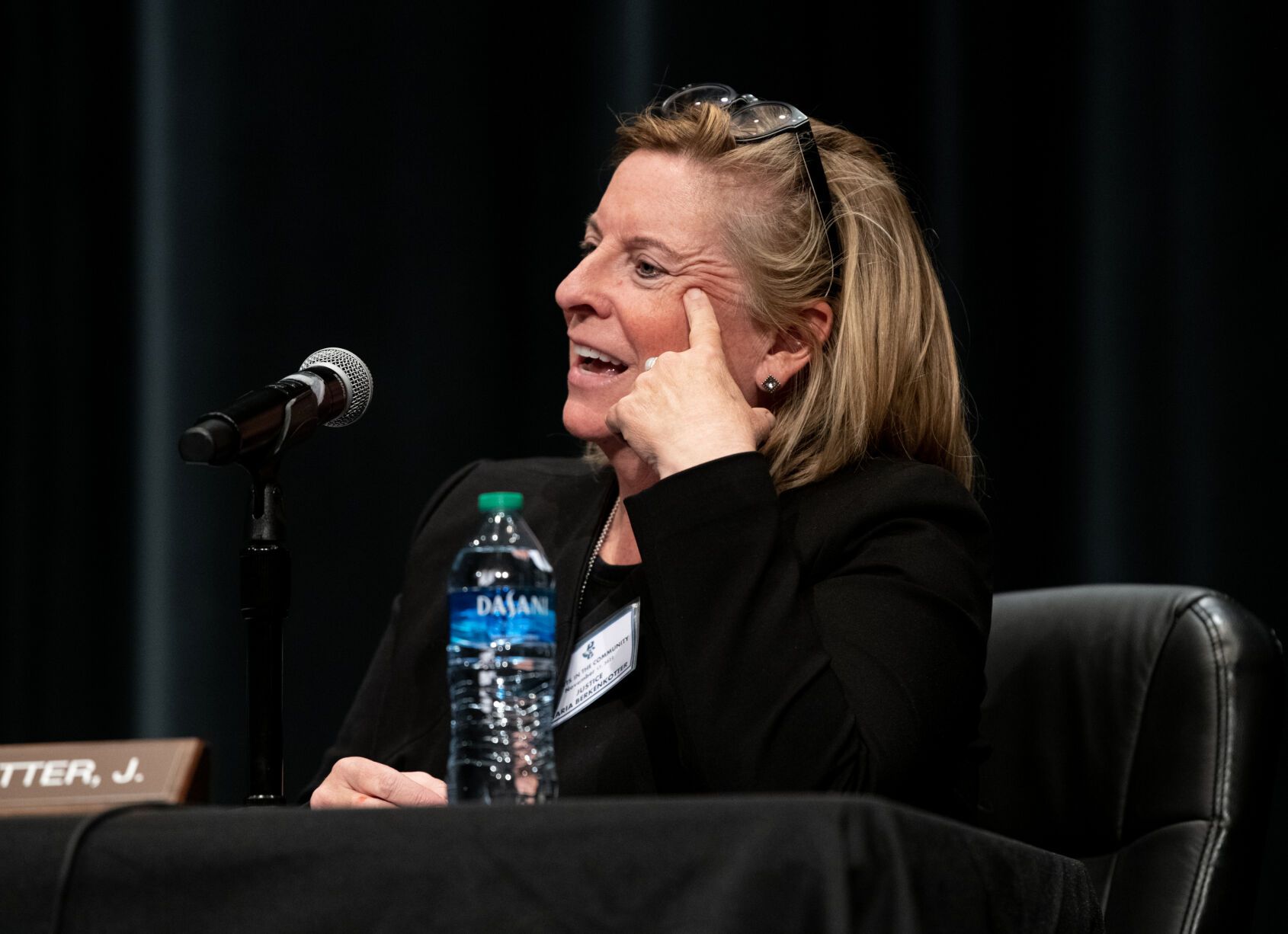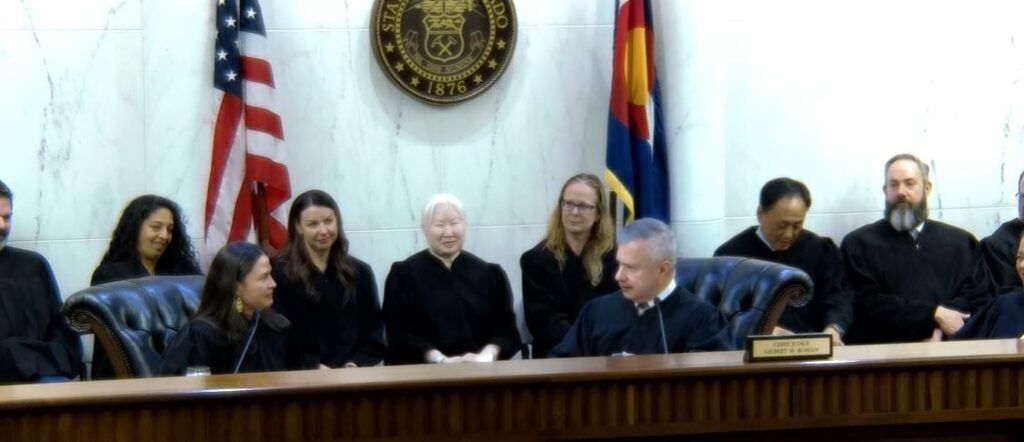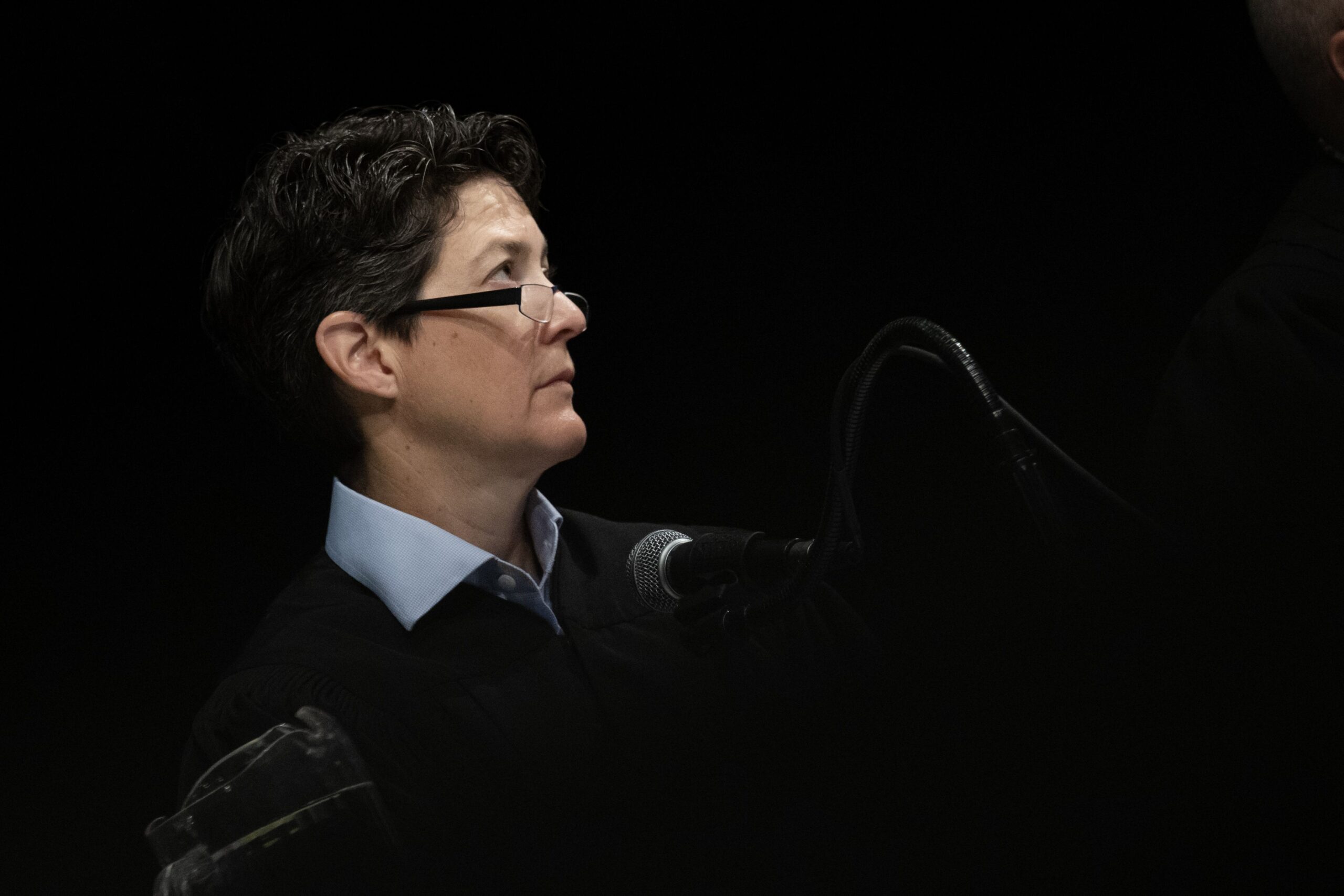Colorado justices, appeals judges speak of need to keep heads down amid political attacks

Two members of the Colorado Supreme Court and three Court of Appeals judges discussed their obligation on Tuesday to refrain from pushing back overtly on political attacks or misrepresentations of their work.
Chief Justice Monica M. Márquez also disclosed certain strategies the judicial branch is employing to counter tangible threats to judges’ security.
“My concern is if this continues, you could be in a situation where judges are having to literally think about, ‘Am I gonna make the right decision or am I gonna protect my family?'” she said. “Because if judges cannot be trusted to make decisions on the facts before them, but are worried about their family members, worried about impeachment, worried about crazy lawsuits or whatever else, that’s a problem.”
The event at the Colorado Bar Association’s headquarters in Denver was billed as a discussion about judicial independence, diversity and “the future of the bench.” However, participants were also asked to reflect on how judges should respond to criticism specifically from political actors.
“I don’t think we should respond. Entering into political discourse is not our job and, in fact, it could be viewed as a violation of our code of conduct,” said Judge Jaclyn Casey Brown of the Court of Appeals. “In my view, we stay the course, put our heads down.”
Brown added that she and her law clerks speak “all the time about how one might want to get involved in a bigger-scale way about what’s happening in the world. But we’ve chosen these roles and we have to work within these confines to improve the system.”
Although the panelists did not raise specific examples, the discussion came around the time that unnamed federal judges have publicly criticized the U.S. Supreme Court for summarily siding with the federal government on multiple occasions without explaining its reasoning. Some Supreme Court justices, in turn, have accused lower court judges of defying them. Meanwhile, members of the Trump administration have characterized judges as going rogue with their rulings, and GOP members of Congress have filed no fewer than nine resolutions to impeach judges this year.

Justice Maria E. Berkenkotter said the dynamics at play currently — in which misinformation and “deepfakes” from artificial intelligence can skew people’s perceptions of reality — make accusations against judges land differently.
“This is not your parents’ news cycle,” she said. “Because we are up against this universe in which information, disinformation, misinformation can be spread so quickly, it’s really a tough, tough time. Because we don’t have huge media budgets and tech budgets and our hands are tied in so many ways, we have to go old school.”
Berkenkotter elaborated that she was referring to transparency of the judiciary’s decision-making.
“People have an idea about who judges are and what they do, and it’s often wrong,” agreed Judge Pax L. Moultrie of the Court of Appeals. “I think the transparency and accountability are some of the protective factors against those political pressures.”

Márquez said that her “worst nightmare” is for a judge, staff member or probation employee to die because of violence.
“I hope that doesn’t happen on my watch,” she said, adding that she anticipates launching a judicial security task force in the next year. Márquez said she is looking at Maryland as a model, but is doing so proactively because Maryland’s judicial security law passed in 2024 after a disgruntled litigant murdered a trial judge.
“What you don’t see day to day are the really tense encounters that our front window court staff are having now with litigants who are angry,” she said. “We have probation officers who are dealing with a clientele that is becoming ever more complex. And our probation officers are not armed. So, when they’re making home visits, they’re taking their own physical security in their hands.”
Márquez also disclosed that the judicial branch has contracted with a “scrubbing service” to remove judges’ personal information from the Internet.
“I can’t say that I haven’t been scared by the stories that Chief Justice Márquez just shared,” said Brown, referring to “what feels like a large-scale attack on the rule of law.”

Among other topics of conversation, Márquez said the judiciary is continuing to focus on recruiting lawyers from diverse backgrounds to become judges. One recent trend, she said, has been the increased appointment of magistrates as judges — meaning judicial employees who are hired to help with workloads in the trial courts.
“That did not used to be the case. There were magistrates and there were judges,” she said. “My intuition is that the process to become a magistrate is less intimidating. You’re basically hired by the district chief (judge), you go through an interview process that looks more like an interview for a normal job. But if you get hired, you get a chance to try it out and see if you like it.”
Finally, Chief Judge Gilbert M. Román of the Court of Appeals drew a parallel between skepticism of affirmative action when he was a younger lawyer and current challenges to institutional diversity, equity and inclusion efforts.
“This is not my first rodeo in this world,” he said. “It was affirmative action then; we need leaders. It’s DEI now; we need leaders. Don’t go anywhere.”
The discussion was backed by the Colorado Women’s Bar Association, the Denver Bar Association, and the law firm Brownstein Hyatt Farber Schreck.













